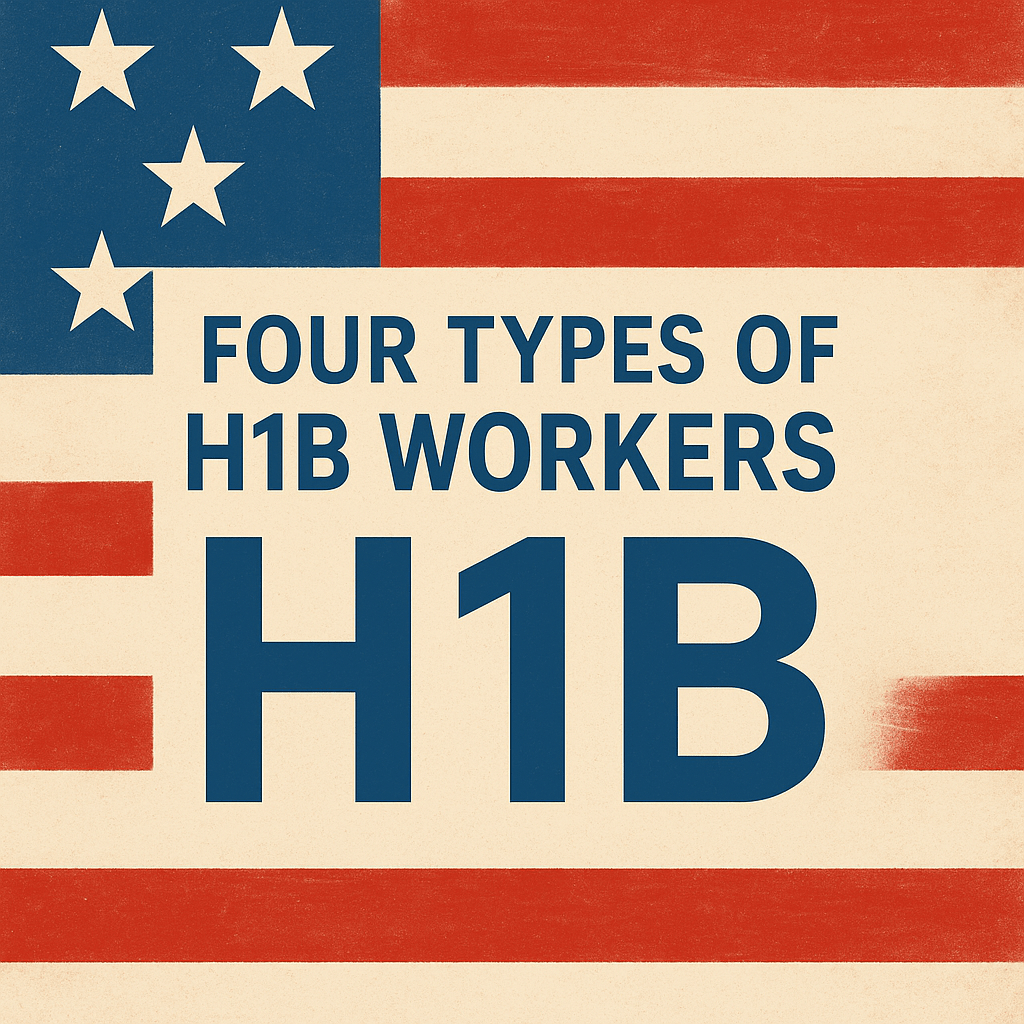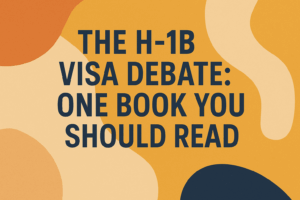The H1B visa program is one of the most debated aspects of U.S. immigration policy. Unfortunately, public opinion often paints all H1B workers with the same brush—when in reality, experiences and motivations differ widely. Some behaviors deserve criticism, but many individuals come with genuine skills, aspirations, and a desire to contribute meaningfully to the U.S.
Based on years of observation, I see four broad categories of H1B workers:
1. The Opportunists
These are individuals who exploit the system. They often create unhealthy work environments by clinging to positions, promoting only people from their own networks, and resisting assimilation into broader American culture. Their focus is less on innovation and more on job security and influence. Unfortunately, this group gives H1B workers a bad reputation and fuels much of the backlash.
2. The Privileged & Detached
Some arrive in the U.S. with significant family wealth and support. For them, H1B is not a lifeline but a convenience. They travel back and forth frequently, enjoy the best of both worlds, and rarely face the struggles most immigrants endure. While they are not harmful per se, their detachment sometimes blinds them to the challenges faced by others in the same system.
3. The Idealized Patriots
This group constantly praises India while criticizing the U.S.—yet chooses not to return home. They celebrate Indian culture loudly while dismissing American culture as inferior. While pride in one’s roots is natural, this attitude can come across as hypocritical and alienating, especially when paired with a lack of willingness to truly integrate into American society.
4. The True Contributors
These are the H1B professionals the U.S. truly benefits from. They are skilled, hardworking, and genuinely want to be part of the American fabric. They value the American dream, embrace assimilation, and often feel isolated—caught between Americans who see them as outsiders and fellow Indians who consider them “too American.” These individuals embody the spirit of immigration: building a future in their adopted country and contributing to its success.
The Role of Americans and Corporations
The blame does not fall only on H1B workers. U.S. corporations often prefer cheaper, compliant labor over genuine talent, which rewards opportunism and stifles true contributors. At the same time, many Americans fail to distinguish between categories—rejecting those who genuinely want to integrate while tolerating those who exploit the system.
If Americans recognized and stood by the “true contributors,” the workplace would look very different. Instead, opportunists rise to power, corporate politics flourish, and resentment grows on all sides.
Final Thought
The H1B debate isn’t just about visas—it’s about values, assimilation, and the future of innovation in America. If the system prioritized genuine contributors, both the U.S. and the global economy would be stronger for it.










